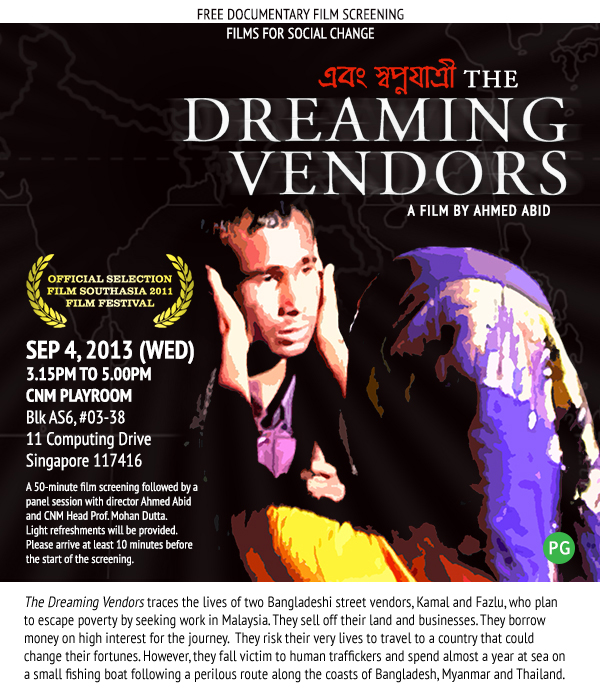Islamic propaganda works continually to undermine Muslims
Source: YouTube https://www.youtube.com/watch?v=0N5hZfB_cGk
Islamic propaganda works continually to undermine Muslims
Source: YouTube https://www.youtube.com/watch?v=0N5hZfB_cGk
Hindutva uses loyalty to silence critique
Source: YouTube https://www.youtube.com/watch?v=ikSEryxBhNk
Hindutva’s silencing of conversation on poverty in India
Source: YouTube https://www.youtube.com/watch?v=1WFhIPzOeCM
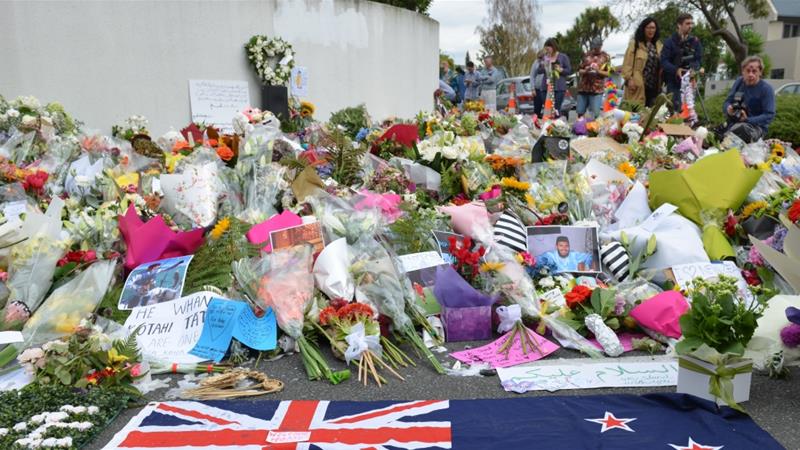
But some analysts have been more explicit in their analysis, and suggested ending the threat posed by the alt-right and Islamophobia will only be achieved by shifting existing mainstream narratives about Muslims, both locally and internationally.
“The terrorist attacks in Christchurch reflect the global rise in Islamophobia – hatred toward Muslims – cultivated by political parties, media organisations, and a wide range of hate industries,” Mohan Dutta dean’s chair in communication at the New Zealand-based Massey UniversityUniversity, wrote last week.
Dutta also called for discussions “anchored in the voices of Muslims experiencing hate” as the “starting point to halting the global spread of Islamophobia”.
Mire agreed and called on New Zealand to set the standard in battling back Islamophobia and the rise of “alt-right extremist ideologies”, which he said threaten minorities “everywhere” in the world.
“It’s sad to think that a situation like this is what drives us to have these difficult and hard discussions,” Mire said.
“But we have a small window of opportunity, right now, and we must take it in order to ensure that such events never happen again.”
Follow us on Twitter: @CAREMasseyNZ
Read the detailed news article on #ALJazeera‘s website.
#CAREDirectorsBlog– Mohan Dutta ‘s article on Al-Jazeera #Islamophobia #NewZealand
#CAREMassey #CAREMasseyNZ #MasseyCJM #MasseyUni
“Activists and academics are not typical bedfellows, but Sue Bradford is making sure the two parties can learn from each other.
The well-known activist and former Green Party MP is the activist in residence at Massey University in Palmerston North for a week. Bradford was asked about a month ago by professor Mohan Dutta, who is the dean’s chair of communication for the new Centre for Culture-Centred Approach to Research and Evaluation, to take the position.
The two are producing a paper on the partnership between academics and activists in struggles of the oppressed. Universities often have an artist in residence, but having an activist is not as common. “This question around the relationship between people who are active outside in grassroots organisations and how people inside the universities can work together is quite fraught and difficult because there are often problems,” Bradford said. “But there are also huge advantages to both. It has never been an easy path in this country.”
She said this week was an opportunity to explore the relationship between activists and academics.”Often, academics are seen as people that come in and do research on us, do their PhDs on us.” She wasn’t given any instruction about what she could do while being the activist in residence. Bradford said there wasn’t the same level of political activity in this generation of students as there had been in the past.
On Wednesday, she spoke to students about her background in the 1980s and 1990s working with an unemployment workers group and unions, and on Thursday she held a workshop with Manawatū activists and students. At 2pm on Friday she is speaking about social movements and her history in and out of Parliament, having previously been an MP for 10 years.
“It’s a completely new experience but at the same time I’m into new experiences and finding out about new people.”
Bradford said the CARE centre worked on transforming structures through communication, culture and community, and that’s what she had spent her life doing, so was keen to be involved. Bradford works for the Kotare Trust in Auckland, which does research in education for social change in Aotearoa.
Dutta brought the CARE centre with him to Massey from the National University of Singapore and he is a leading scholar for health communication and is a researcher of indigenous rights and activism. He said the work of CARE was about creating communication platforms for democratic spaces so communities in disenfranchised places had a voice. The centre also looks at poverty and health for migrants and refugees.”
Article Source: www.stuff.co.nz
Article Link: https://www.stuff.co.nz/manawatu-standard/news/107443172/sue-bradford-takes-up-residence-as-massey-universitys-activist
Click on the url link for media related articles on Sue Bradford
“Food Insecurity in Singapore: The Communicative (Dis)Value of the Lived Experiences of the Poor” – This journal article co-authored with Naomi Tan, Satveer Kaur, Prof Mohan Dutta, and Nina Venkataraman just got published in the Health Communication! Here is a link for 50 free downloads. Link:http://www.tandfonline.com/doi/full/10.1080/10410236.2016.1196416 Abstract: “Food insecurity is a form of health disparity that results in adverse health outcomes, particularly among disenfranchised and vulnerable populations. Using the culture-centered approach, this article engages with issues of food insecurity, health, and poverty among the low-income community in Singapore. Through 30 in-depth interviews, the narratives of the food insecure are privileged in articulating their lived experiences of food insecurity and in co-constructing meanings of health informed by their sociocultural context, in a space that typically renders them invisible. Arguing that poverty is communicatively sustained through the erasure of subaltern voices from mainstream discourses and policy platforms, we ask the research question: What are the meanings of food insecurity in the everyday experiences of health among the poor in Singapore? Our findings demonstrate that the meanings of health among the food insecure are constituted in culture and materiality, structurally constrained, and ultimately complexify their negotiations of health and health decision making.”
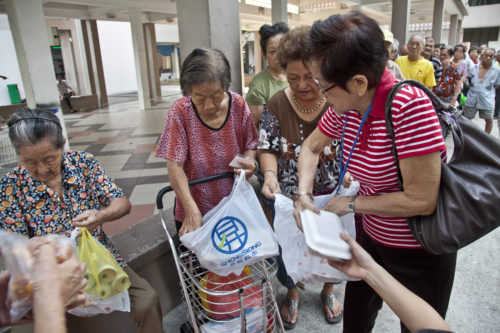
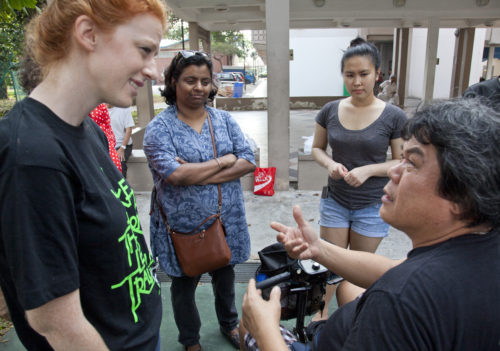
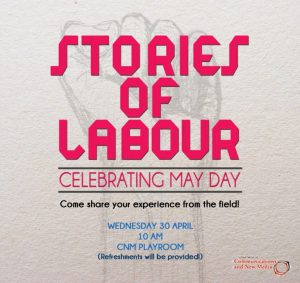
Read the analysis by Professor Mohan Dutta as he delves into the critical relationship between inequality and health in his compelling article featured in The Strait Times. In this article, he provides valuable perspectives on the intersection of social disparities and public health, underscoring the urgency for collective action towards creating equitable health outcomes.
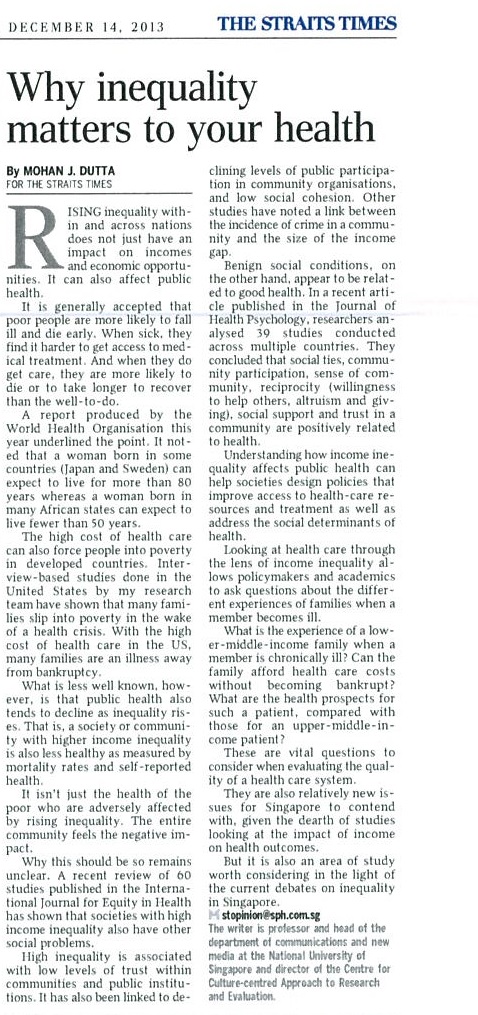
Join us on 24 October for a captivating journey through the heart of Orissa’s tribal communities with a 120-minute screening of “Wira Pdika.” This poignant documentary unveils the staggering discrimination and injustices faced by these resilient communities at the hands of large mining and metal industries. Following the screening, engage in a Q&A session with filmmaker Samarendra Das and CARE director Prof. Mohan Dutta, as they illuminate the Adivasi struggle for justice and amplification of their voices.
Films for Social Change is an initiative by the Center for Culture-Centered Approach to Research and Evaluation (CARE), a health communication research centre based in the National University of Singapore.
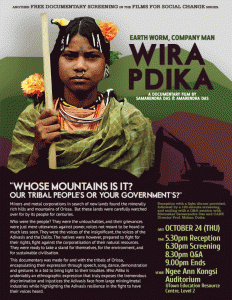
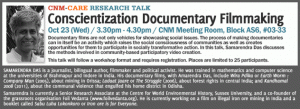
To register for either or both events, please click here. Brought to you by CARE, with kind support from UTown Residence.
You can find more information on Prof Dutta’s research work here.
Join us on 4 September, 2013 for a screening of ‘The Dreaming Vendors’, a poignant documentary that follows the lives of two Bangladeshi street vendors. Their aspirations to escape poverty lead them to seek work in Malaysia, only to become ensnared by human traffickers. Following the screening, engage in a Q&A session with filmmaker Ahmed Abid and CARE director Prof. Mohan Dutta.
Films for Social Change is an initiative by the Center for Culture-Centered Approach to Research and Evaluation (CARE), a health communication research centre based in the National University of Singapore.
